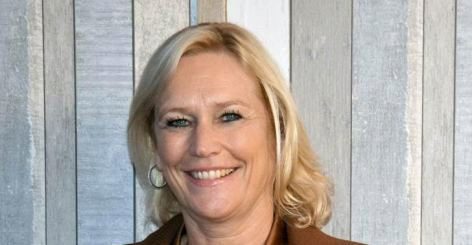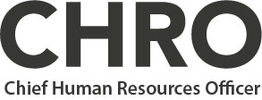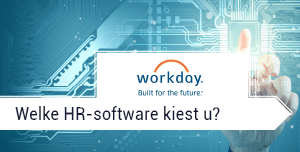The role of HR is to support and challenge

"HR is not business-oriented enough," says Geke Kooij-Flierman, Director of Human Resources at Thales Nederland. "HR is there to drive, challenge and support the business, and there should be a 'pull' effect, with the business wanting HR to support and challenge it. I believe you should earn the respect and position of HR from the organisation, and deserve your role by showing you can make a difference."
Kooij-Flierman has worked in HR for more than 20 years, spending over four of these with Thales Nederland. Having worked in senior HR positions for various companies, including Vital Scientific KPMG, and SCA she certainly knows what she is talking about. She firmly believes that HR has an important role to play in businesses of the future. “HR supports and challenges the business to think outside the box and see how we can work differently and be more efficient; how we can get the best out of people,” she says, adding that cooperation is crucial to this, as are partnerships. “What I see is that, in companies like ours where we are delivering highly complex systems to our customers, that we need partnering. I always compare the future ways of working with Spotify because, a few years ago I bought my CDs in a shop and paid money and then owned those CDs, but now I have a Spotify subscription and with that I have access to all kinds of music – almost everything is there. That’s how I see the future of the labour market. You don’t own the knowledge or future but you have access to it.”
According to Kooij-Flierman, when she first arrived at Thales there was “quite a need for change”. The organisation, with the inclusion of HR, needed to become more efficient and flexible she says. So she took action. “Together with the HR management team and the Thales Netherlands management team, I put a strategy and vision together for HR based on the business challenges. Then we produced the HR calendar, which was to run for five years, until 2016,” she says. She adds that it was crucial to ensure HR delivered on what the business needed. “A crucial role of HR is to support and to challenge,” she reiterates. “So, based on that strategy I worked with the HR team to implement an electronic HR system including an employee- and management self-service portal. We increased efficiency in this way and were also able to reduce the number of people in the HR organisation.”
She also worked hard to drive a change in the company’s culture. “This was important because where we come from is a hierarchical and more controlled organisation,” she says. “Where we want to move to is rather a focus on output and ensuring our employees and managers get the room they need to manoeuvre and take responsibility.” Asked about her personal style of leadership, Kooij-Flierman says she believes in participative leadership. “Because I can’t do it on my own. I need the diversity of my team. I think it is important if you are leading a team that you have a vision; a very clear idea of where you want to go in the next couple of years. The way to get there is something you can work out with the team,” she says.
One of the challenges currently faced by Thales – a very high-tech company – is that it has a large senior staff contingent, says Kooij-Flierman. “Our age pyramid is completely 180 degrees different to what you’d like,” she says, adding that the younger staff members comprise the smaller end of the pyramid. “But we are working on that. In our case, strategic workforce planning and knowledge planning is very important.” She says the company has an annual process in place where HR takes the lead in discussing with various business leaders what their needs are, what is going on in their department, and which people they think have the potential to be developed further. Prior to this discussion, management has discussed with each individual his or her own ambitions and how they seem themselves. “The mobility rate before I arrived was low internally. In order to develop the organisation it’s important to have a certain mobility, so I believe it’s good to create and foster this within a company,” she says. Furthermore, the company has a strong focus on recruitment, offering as many as 150 yearly internships. This encourages an uptake of youth people, Kooij-Flierman says: “We are trying to find a balance between the right knowledge, as we are a knowledge-intensive company, to ensure the knowledge of the older staff is transferable to the younger people, along with the transfer of skills.”
Thales is so passionate about skills development and attracting the attention of youths that it frequently presents to primary school-age children to show them just how fascinating technology is, and grab their interest from a young age. In addition to this, the company places much emphasis on attracting females into the sector. “We won the Femme Tech award last year for companies working to attract and retain technical ladies,” Kooij-Flierman says. She adds that while she saw a large proportion of women working in technical positions and environments while she was in Scandanavia, France and Belgium, the Netherlands is still some ways behind. “That is where I think going forward we need to focus our attention, on attracting female employees on a longer-term level,” she says.
Asked where she would like to see HR at Thales in five years time, Kooij-Flierman says: “I would like it to look efficient and be seen as a serious sparring partner and a very professional partner; that they cannot do without HR.”













